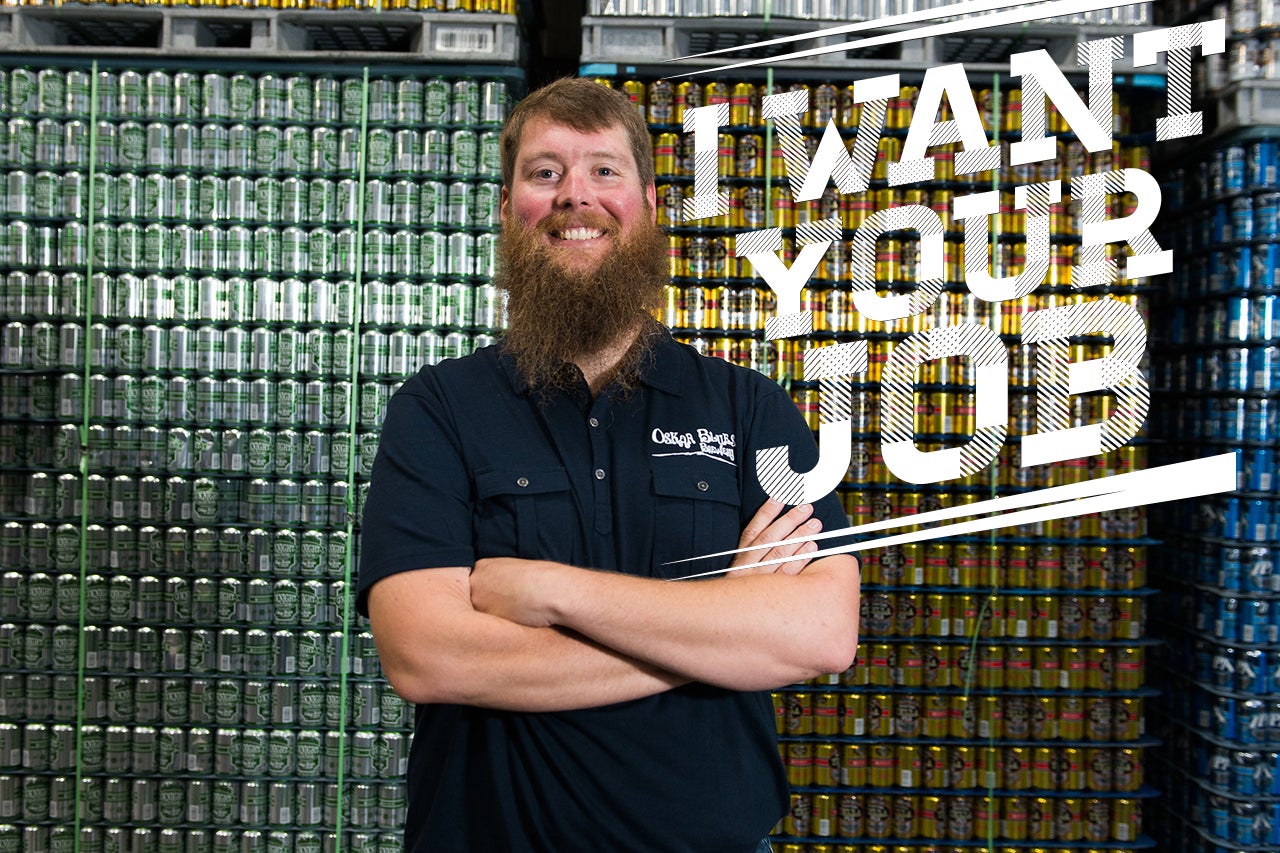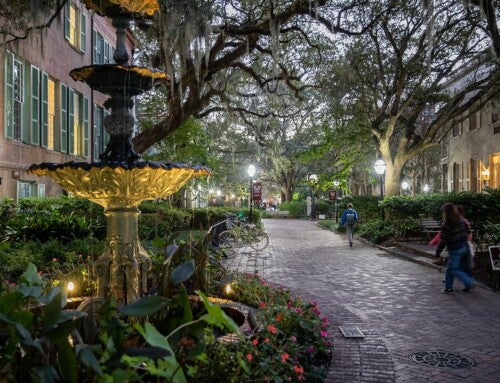Growing up in Laurens, South Carolina, David Wilson ’08 always had an interest in science. Despite his initial dream of attending veterinary school, Wilson’s ambition was redirected to a different kind of science: brewing beer.
Now he puts his biology degree from the College of Charleston to good use as a quality control lab technician at Oskar Blues Brewery in Brevard, North Carolina.
The College Today recently caught up with Wilson to talk about his career path, his responsibilities at Oskar Blues and some great advice he once got from a professor.
Q. How did you discover your position at Oskar Blues Brewery?
I’ve been a fan of craft beer for a long time and received a home-brew kit as a birthday gift about 5 years ago and it gave me a new appreciation for how beer is made, and how it can go wrong. I took a few classes to improve my sensory and understanding of the brewing process, in hopes that maybe one day I’d be a brewer somewhere. I then learned about the role of the quality control lab in bigger breweries and knew that’s what I wanted to do. I volunteered at a friend’s small brewery on my days off to increase my knowledge, and I eventually landed the QC lab position here at Oskar Blues.
Q. How did your degree from CofC help you land your first job and subsequent jobs?
I started out as a pre-veterinary major working for a local veterinarian while attending CofC. I quickly realized that veterinary school was no longer as exciting as I once thought, and took a job after graduation at an avian conservation center nearby. My biology degree helped me interpret the ecological and environmental impacts we have on nature and explain it to those who visited the center. I always dreamed of living in the mountains, and Asheville was always on my radar. Looking for change, I made a bold move and found a job as a veterinary technician in Asheville. This eventually lead me to working in a pathology lab allowing me to use the technical skills, equipment, and concepts I learned in various biology and chemistry labs in my college career. Many of those have also transferred to the equipment and processes used in the brewery lab.
Q. How does working at Oskar Blues compare to working in pharmaceutical/medical environments?
In the medical labs that I’ve worked in, the sample comes in, it gets processed, and then it’s sent out for someone else to interpret the data and make a decision. Here in the QC lab we collect the samples, we run the experiments, we interpret the data, and then we get to make the decision. The lab plays a huge role in our production here at in the brewery.
RELATED: Read past installments from the I Want Your Job series.
Q. What are your responsibilities in your current role as QC Lab Technician at Oskar Blues Brewing Company?
Basically, we test and monitor every aspect of beer making here, from the brewhouse and fermenters, to the packaged kegs and cans that leave the brewery. We perform cell counts on our yeast to make sure the fermentation is healthy enough to harvest from a fermenting beer to use it in the next one brewing. We conduct sterile microfiltration of our cans and kegs to check for any potential spoiling bacteria or wild yeast, and we have the ability to use polymerase chain reaction tests to determine exactly what type it could be. Our sensory panel evaluates our packaged beer to determine any off flavors which includes comparing/contrasting it to our brewery in Colorado. We want to make sure that every beer you get from us is the same tasty beer you expect to get anywhere in the country.
Q. What do you like most about your job?
Most would expect the answer to be beer! It’s a great perk, but I also like the way this industry operates in general. The amount of information exchanged to help each brewery make the best beer they can possibly produce is a great thing. I like how helpful the people are here to one another, as well as how we help out other smaller breweries in the area. We’ve also stopped beer production in times of emergency to can water to send to areas in need. I think that’s pretty cool.
Q. What lesson or piece of advice from a professor at CofC stuck with you and why?
During a discussion in class, my ecology professor Phil Dustan, once said, “If you only do what you’ve done, you’ll only get what you got.” I’m not sure if he says that a lot but it stayed with me. To me, it meant you have to evolve, to get better or smarter, in order to move ahead. If you don’t, you’ll never flourish and grow. I feel like that holds true in many aspects of life.
Q. Has your preference in beer changed since beginning work at Oskar Blues?
I still like the fresh hoppy beers and the big stouts like before, only now I can try them super fresh! I feel like I can pick up on the different nuances of beers that I wasn’t paying attention to before. Now I have a vocabulary I can use to describe them, which can be both good and bad! Luckily, there are still some new styles that are popping up, or being reinvented, so it keeps things interesting.
Feature photo by Reese Moore.






